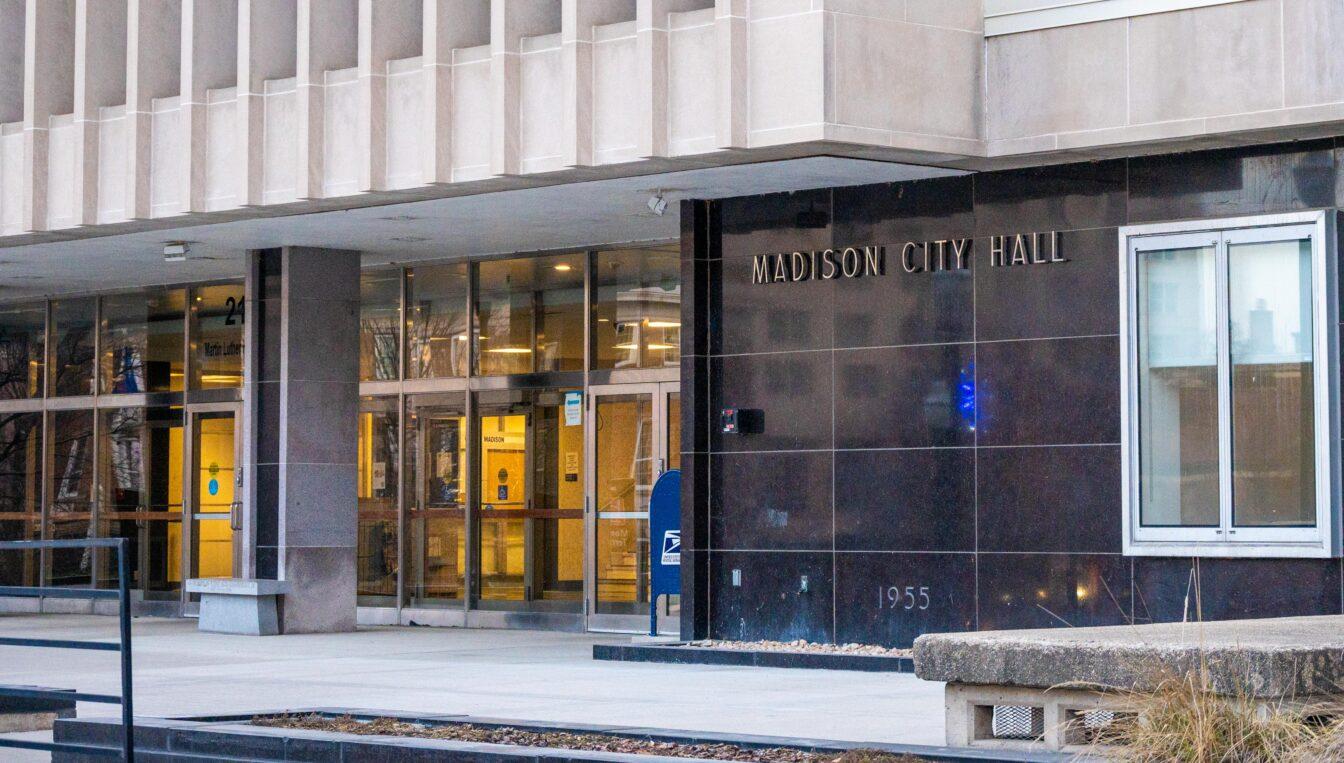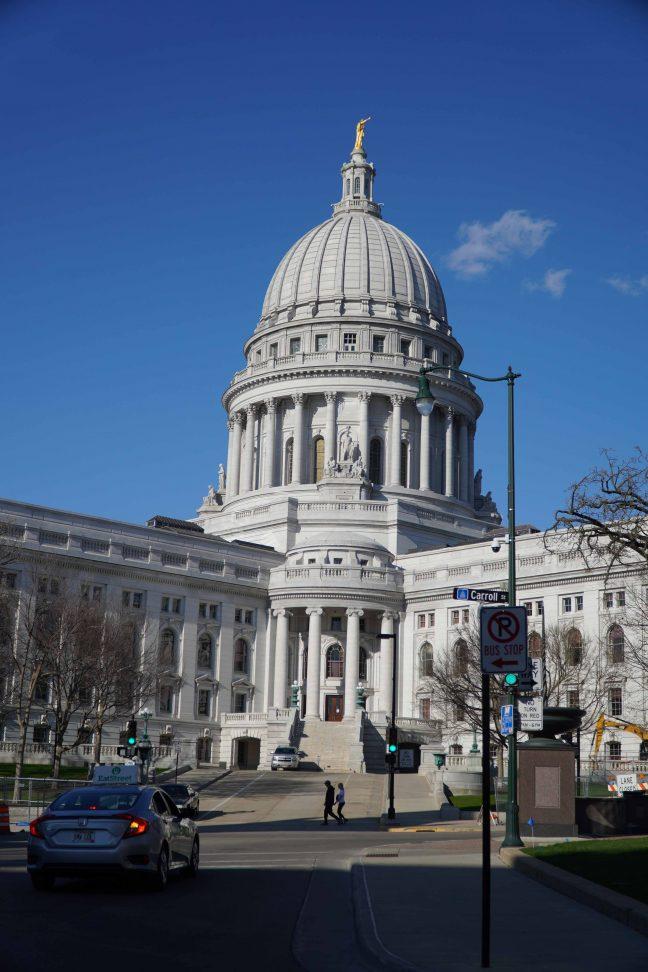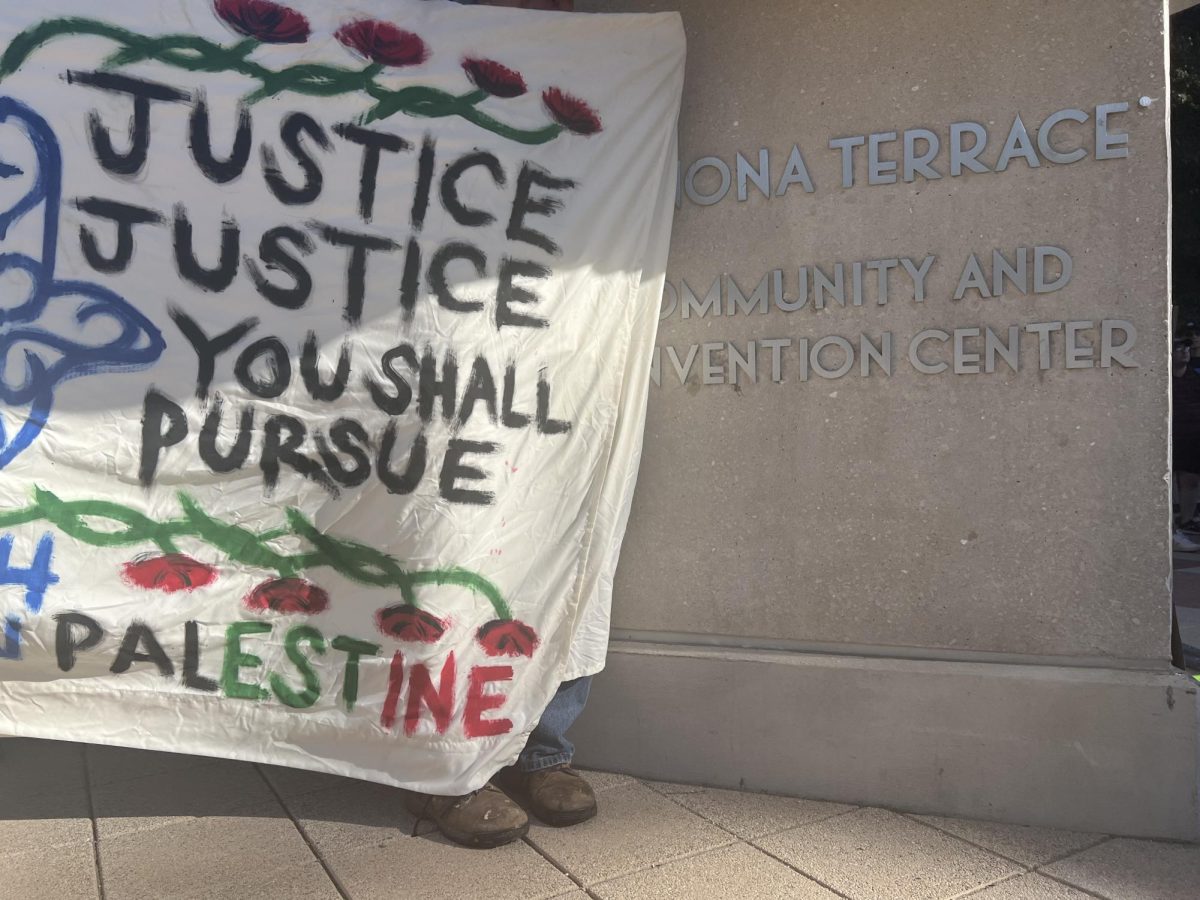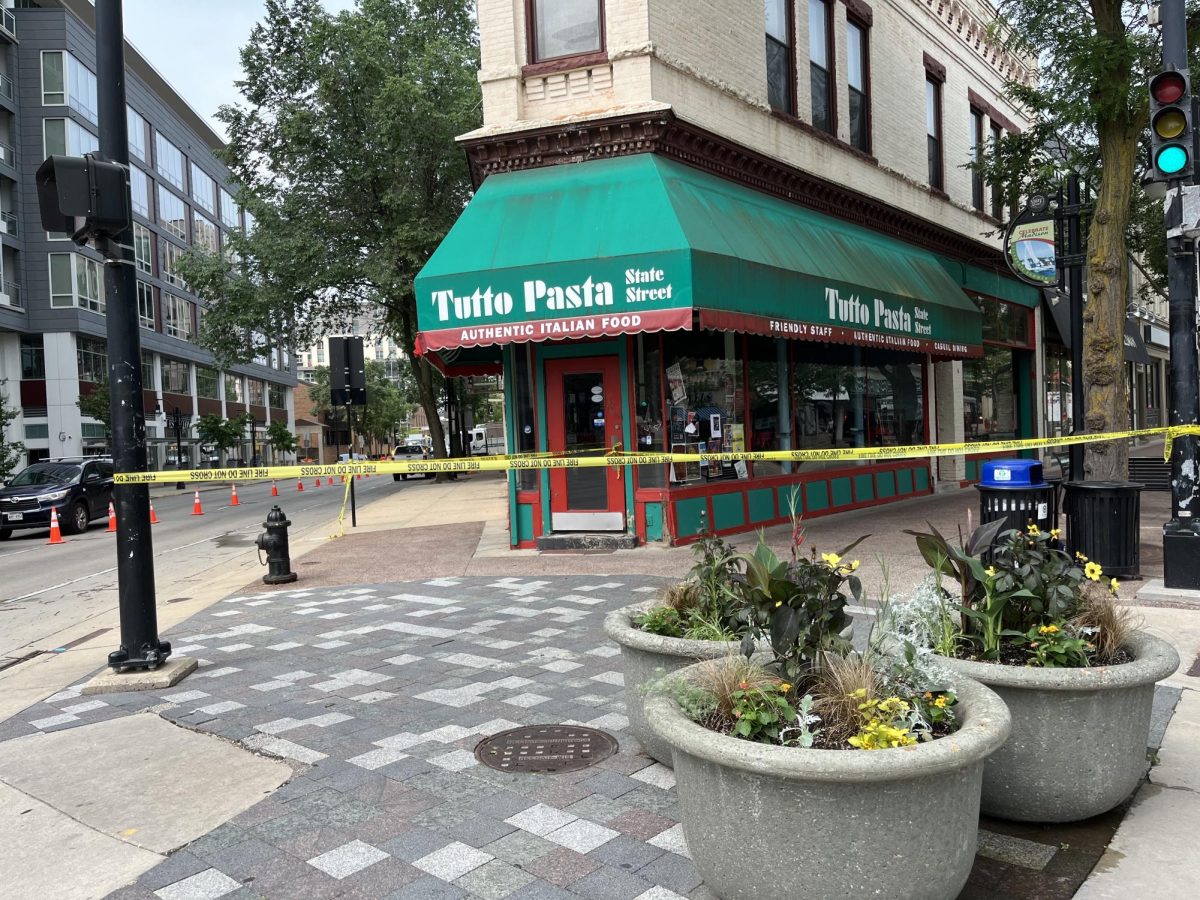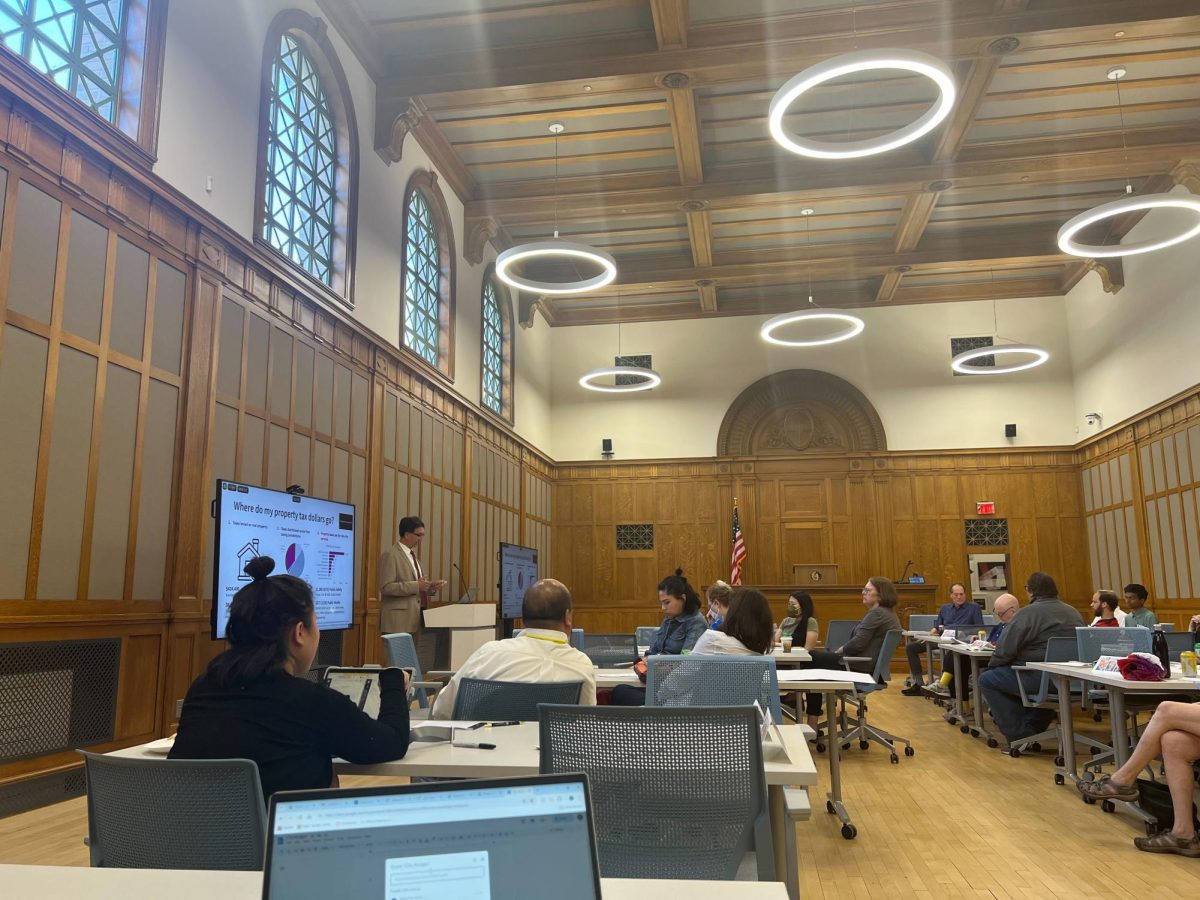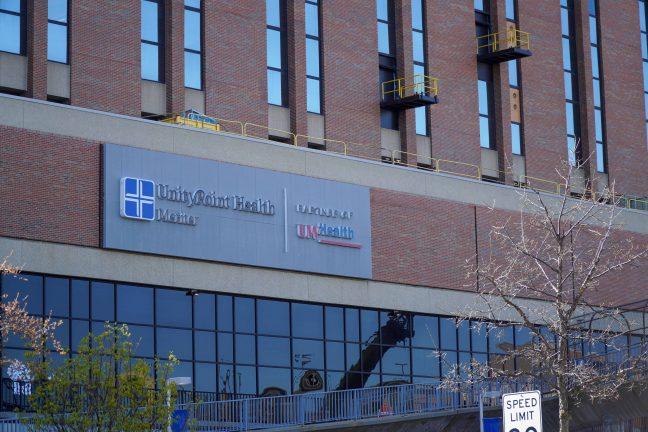Residents of Dane County’s District 13 are eligible to vote in a spring primary for the District 13 Dane County Supervisor Tuesday, Feb. 20. The Badger Herald spoke to each candidate to learn about their priorities and plans to support University of Wisconsin students in Dane County.
Jay Brower is the incumbent running for reelection. In addition to the Dane County Supervisor position, Brower works as a union organizer for Service Employees Internal Union Wisconsin, which represents healthcare workers. Brower’s time on the Board and experience with students in health care and labor spaces underscore his campaign.
Travis Austin is a recent UW graduate, with a degree in political science and certificates in public policy and environmental studies. Austin will return to UW to obtain a master’s degree in public affairs in the fall. With a bid for the District 13 supervisor seat, Austin hopes to represent student interests of affordable housing and mental health.
Ronan Rataj is a freshman at UW and a lifelong Madison resident. Rataj has spent two years on the Dane County Board’s Public Protection and Judiciary Committee. Rataj’s platform centers on bridging student interests with the work of the Dane County Board of Supervisors to advocate for students on issues like affordable housing.
Below are transcripts of the conversations, which have been edited for length and clarity.
New sustainability center to be built at entrance of Lakeshore Nature Preserve
Badger Herald: District 13 encompasses a large portion of the University of Wisconsin’s campus — how do you plan to handle issues that have a significant impact on students, such as affordable housing and transportation?
Brower: It’s important to carve out what are city issues from county issues. For instance, the public transportation system in Madison is 100% a City of Madison issue … there are some things that I think the county may be able to help do to help improve — especially in our connection between public transportation systems to help people who live in neighboring communities get into Madison for work and school.
When it comes to affordable housing, the City of Madison has control over that. You may have seen there’s a development on Park Street — the Oliv development that’s going up — the good work of the Campus Area Neighborhood Association … led to an agreement between the city, the university and the developer to ensure that there were a number of of beds reserved for students who had demonstrated financial need …
Thinking broadly though in Dane County, I serve right now on the [Dane County Board’s] Health and Human Needs Committee, which I hope and expect to continue on. We’ve done a lot in terms of advancing affordable housing.
One of the things I’m very interested in — and my experience leads me to know a decent amount about — is that we tend to think of students in this very narrow kind of category of just 18 to 24 year olds, but there are students who are much older than that, students who are single parents, students who are homeless … the student identity and category is much broader than that. So thinking about how housing affordability and availability in the county broadly can be affected is important to me.
I voted to increase the funding for affordable housing, to develop county-level positions to support housing strategy, because the housing market is just intensely complex, especially when it comes to building and providing housing at an affordable rate in a very, very hot real estate market.
Dane County Executive race expands as Dana Pellebon announces candidacy
Austin: [With] the affordable housing thing, the county has limited access in dealing with it. That’s primarily a City of Madison thing when it comes to zoning. However, what we can do as the county is incentivize and support the city in as many ways as possible, as well as just the Dane County community at large. Affordable housing is an issue not just on campus — it’s particularly isolated on campus — but also in the county at large and we’re seeing affordability problems sprawl outwards as well.
You mentioned transportation … something I’d really like to see is better interconnectedness within the county — trying to incentivize connections between communities, rather than just staying within the Madison area. The Village of Oregon is looking to start their own transit system. That’s something we need to look into is connecting these broader communities and everything, at large, so students who typically don’t have cars could access the broader Dane County community as a whole.
The third — that brings home a bit more to me — is helping students and particularly just residents of Dane County access affordable health care, particularly mental health care. That’s another one that hits home to me. I serve on the UW Health HIV Comprehensive Care Programs Community Advisory Committee. I was actually just voted to be the co-chair of the committee, which is a really cool position because I help deal with agenda setting and a lot of interacting with the administration at UW Health in what programs we’re doing … I’ve noticed that a lot of that ties into mental health care, particularly when I was diagnosed with HIV. I was fortunate enough that UW Health had funding for this program to send me to a specific clinic … I was lucky in that sense, but most students are not covered for many of these clinics in the area and so they have to pay out of pocket most of the time and that’s not affordable and accessible for anyone.
Rataj: The issue that matters most to students is affordable housing … something with affordable housing that I think that we should be doing is making sure that we’re focusing on promoting new developments still, but also making sure that those new developments are affordable for students.
Every year we’re accepting more and more students into our freshman class … The issue with the housing market is that we don’t have enough housing, but also, the housing that’s being built is way too expensive for people. What I would want to do on the county board is to create financial incentives for new developers to move on from this luxury model they’ve been doing … what [students] want is reasonably priced housing that’s safe and close to campus. So working with new developers to have less square footage per bed, and more beds available then for students to lower the price of rent. With the new developments that would come in, the other developments that are already up would have to lower the prices to stay competitive. I really think using the loans that the county gives out and taxation to financially incentivize more reasonably priced housing developments is my solution to the housing issue.
For transportation, the most common way that students choose to get around on campus is to walk. I think when we’re talking about transportation, something that we should really focus on is making walking paths safer and better lit for students. So that way, they feel better about walking home at night. We have SAFEWalk on campus, which is great, but it only goes about a mile outside of campus and it only goes until 1 a.m. If someone’s out even later than that or a little further away from campus, making sure that our streets are well lit is a really important way of keeping things safe.
Students to benefit from Rental Rehab Program, city official says
BH: What do you think is the most important issue Dane County is facing right now and how do you plan to address it?
Brower: It’s undoubtedly housing — the affordability and availability of housing, the resources that we need in order to care for people who are experiencing homelessness, to ease burdens related to unstable housing — and these include an array of factors.
Something that I’m interested in working on that is squarely within the county’s purview is improving food access in the county and especially District 13. I’ve been talking with people who operate a number of food pantries that get their food primarily from food banks like Second Harvest. Even in the campus area neighborhood, even with the university having its own food pantry, the food pantries in District 13 are utilized pretty regularly, which is a sign of need.
There’s also a way that I believe that the county can be a good and strong partner in connecting Dane County farmers with food banks, understanding the needs that food banks have in terms of the type and quantity of produce and what their price point is to help coordinate market actors … So that the producers are producing the stuff that the consumers want, and that the people who purchase and distribute the food can get a hold of it at a at a price that is sustainable … It sounds simple, but it is quite complex because you have to coordinate all the different pieces together and that’s something that the county can definitely provide …
When it comes to housing … something that the county can do — and me as an individual supervisor — is build a coalition of interested parties to find creative solutions. For instance for financing — which is a big barrier to people finding housing — being able to have like a first and last month’s rent as a deposit, that’s a huge chunk of change to come up with. So what opportunities are there for the county to come up with creative financing arrangements?
I attended recently a meeting of the Campus Area Neighborhood Association and we were also thinking about creative ways to ease the housing burden. I’ve heard frequently that the only way to get an affordable rental in the campus area is to know somebody who has a local landlord and the location just gets passed down word to mouth. So to think about ways that we might be able to affect that.
We would need to tread carefully on this, because the county can’t be in the business of promoting some businesses and not others in an unfair way, but maybe we could have a vetted list of of high quality landlords … landlords that are known for being fair and honest and reasonable. And that’s something that maybe the Campus Area Neighborhood Association could promote, but the county could help provide some technical assistance and then also work with the Tenant Resource Center on that. So that’s an initial nugget of idea, but kind of creative ways of thinking about solving the housing problem.
New Minnesota statutes are shielding students from housing woes. Can Madison follow suit?
Austin: Number one is affordable housing in Dane County at large. My goal is to hopefully have county funds dedicated towards incentivizing increasing density. Specifically, density in areas that are having the highest strain. Also that this is then funded in a way that incentivizes not the luxury style apartments that we’re seeing go up not just around campus, but around the entire county. The metrics you can look at are costs per square foot of the apartment and seeing that metric being lower … [that metric] being the one that this type of loan program can apply to …
Outside of that, also supporting our health care workers in the county … I have a friend who works in a mental health care inpatient clinic on the west side. Hearing about their experiences, it has been deeply touching to me. Also on the other side of things, our mental health care workers and lots of the students that go into health care feel supported as well.
Rataj: I think one thing that isn’t brought up enough … again, I do think it’s housing. That’s such an essential need for everyone … but something that I think is not talked about enough is that our students are not participating nearly enough in our local government, in our democracy. That’s definitely not the fault of the students, there’s so many barriers in place for students, especially those who are moving here from out of state that have just as much right as anyone from in state to vote here, but there’s so many barriers in terms of having to get the student voter ID, and it’s different from your Wiscard, needing to have a proof of address and the fact that some out-of-state students can’t register online because of their ID status from where they live. I think that is a really big barrier.
Something I do want to point out is two years ago — this exact same election, the District 13 County Board election — the precinct that contains Witte and Sellery dorms, which contain thousands of students, there were 20 [23] votes from that precinct. That simply is not enough. Students are not being represented in their local government. Right now, in the district I’m running in, I’m the only undergraduate student running. It’s a historically student-held seat. But currently, our representative is not a student.








